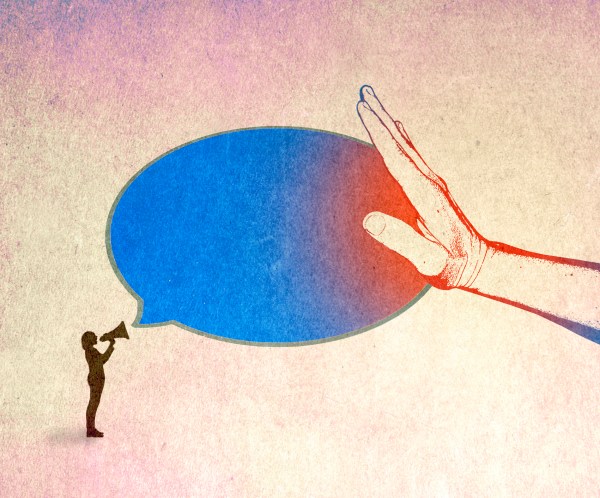Hello and happy Saturday. If the first months of the 2024 presidential election felt like a slow-placed low-grade horror movie, filling viewers with dread along a plodding path to an unhappy ending, and the month of July felt like a historical documentary in the making, August is shaping up as a sitcom.
On Wednesday, Nick headlined his newsletter “A Show About Nothing,” which even some of our younger readers might recognize as a reference to Seinfeld. He lamented the vacuous nature of the campaign—from both teams. Case in point? With Ukraine launching an offensive on Russian territory, the Middle East on verge of a full-scale war, and the economy looking shaky, both Kamala Harris and Donald Trump are in violent agreement that … restaurant servers should not have to pay taxes on tips. Nick wrote: “It’s terrible policy, it’s insultingly trivial relative to America’s actual challenges, and the two nominees have the same position on it. It’s a neat microcosm of the unseriousness of the race since Harris replaced Joe Biden at the top of the Democratic ticket.”
The week did not get more serious from there. Harris unveiled a sweeping economic agenda Friday in a speech in North Carolina, vowing to ban price gouging on groceries and offering up to $25,000 to first-time homebuyers for down payments.
In the Friday G-File, Jonah admits that her ideas might sound good: Voters like politicians who want to give them something, and it’s especially appealing to the social justice crowd that emphasizes equality of outcomes over the equality of opportunity. However:
“If the median voter thinks price-fixing is a good idea, then the median voter is ignorant and wrong—about price fixing (the median voter might be wise and informed on countless other issues from the inedibleness of marmite to the non-sandwich status of the hotdog). A bad idea doesn’t become good just because a large number of people subscribe to it.”
But while price controls sound good, they don’t work. He writes: “When these ideas fail—as they must—their promoters don’t blame themselves or their ideas. They blame the greedy, the malefactors of great wealth, the millionaires and billionaires, the kulaks, the Jews, the financiers, the globalists, Big Corporations, Wall Street, and, of course, the price gougers, just to name a few scapegoats.”
Over on the other side of the aisle, no signs point to the Trump campaign getting more serious, either. As much as Trump can be unpredictable and mercurial, his campaign managers, Chris LaCivita and Susie Wiles, are seasoned political operatives who’ve been trying to give Trump good advice.
But with Trump losing ground in the polls, guess who’s back? Corey Lewandowski, who ran much of Trump’s 2016 campaign, is joining the team as an adviser, and he’ll be bringing his 2016 playbook with him: “Let Trump Be Trump.” In Friday’s Boiling Frogs (🔒), Nick calls Lewandowski “an enabler of Trump’s id, a ‘warm blanket’ who’ll reassure the boss that his instincts are right and his highly paid advisers are wrong.
Lewandowski’s return is not the only thing that has Nick flashing back to 2016: He notes the weird parallels like Joe Biden being pushed aside to make way for Hillary Clinton then and Harris this year, and both nominees picking “suburban-dad-ish running mates—named Tim!” None of it has him feeling optimistic.
“With Trump down in the polls, Corey back on the team, and Democrats trying to hold the White House without the sitting president at the top of the ballot, there’s suddenly something very familiar about this campaign. And not in a good way.”
That’s where we stand 80 days out from Election Day. Thanks for being on this crazy ride with us, and have a great weekend.
While Kamala Harris’ campaign has largely gone better than most people might have guessed before President Joe Biden withdrew from the race and endorsed her, her running mate, Minnesota Gov. Tim Walz, has already dealt with some unwanted attention over his military service and a past association with an antisemitic Minneapolis imam. Those are the kinds of things that would normally come up in the vetting process that presidential candidates conduct before choosing a vice presidential candidate. But Harris was operating on a much shorter timeline. David Drucker spoke with some members of Mitt Romney’s 2012 campaign, who shared how the process normally works. Back then, the process took about five months, starting with a long list of names and brief profiles. Once May 2012 hit, the list was down to five names and full vetting commenced. “The vet was pretty damn thorough,” a Republican strategist told Drucker about the process to select Paul Ryan.
Kevin generally includes a section he calls “Words About Words” in his weekly newsletter, but this week he devoted his big essay to discussing one important word: weird. The Harris campaign has used the term to describe the Trump campaign, and it seems to have struck a nerve. Kevin thinks he knows why: It’s a vestige of the era of “pickup artist” blogs, which became popular about 15 years ago and sought to teach men how to act like “alpha males.” He writes that a lot of men on the New Right are or were immersed in that culture, and it shows. “One of the things you might have noticed if you were reading those blogs a decade and a half ago was the unquestioned consensus that the worst thing a woman could call a suitor was weird, or some variation such as weirdo, followed by creepy/creep and other near-synonyms. Weird wasn’t just a criticism or a prelude to rejection—it was emasculating.”
The Dispatch Politics team checks in on the Trump campaign’s ground game and … isn’t finding much as one might expect so close to the election. We reported back in April that Trump wanted his campaign and the Republican National Committee to focus on “election integrity.” The ground game would be left to super PACs, thanks to a Federal Election Commission ruling in March that allowed direct coordination with campaigns on canvassing efforts. Now, “there is scant evidence of a Trump/RNC ground game, robust or otherwise.” A ground game might not have seemed necessary when Trump was leading President Joe Biden comfortably, but that changed overnight when Kamala Harris took over. With the need to change strategy and time running out, the campaign has questions to answer. As one GOP operative said to us, “Are they organized and what are their goals? … Is their goal turnout or ballot integrity? And, as for the outside groups, how does one audit them?”
And here’s the best of the rest:
- Intel recently announced that it lost $1.6 billion last quarter and has plans to lay off about 15,000 workers. Did you know the company was also the biggest recipient of subsidies from the CHIPS Act, which is designed to boost semiconductor chip manufacturing in the U.S.? In Capitolism, Scott looks at the systemic failures that have contributed to Intel’s problems and writes, “The real question isn’t what happens to Intel next; it’s how we got here in the first place—and how the CHIPS Act all but guaranteed that we would.”
- A Democratic National Convention in Chicago with an unpopular war threatening to divide the party? The 1968 convention was marred by protests and exposed the party’s dysfunction, and a lot of Republicans are hoping that history repeats itself next week. Chris Stirewalt writes in his latest newsletter (🔒) that this time should be different: Anti-Israel sentiment isn’t as widespread as opposition to the Vietnam War was in ‘68, Kamala Harris is a little more popular than Hubert Humphrey, and security around the convention is a little tighter these days.
- One constant in politics is that young voters favor Democrats—it’s a stereotype backed up by decades of polling. Why then, are so many young men drawn to Donald Trump? Scott Howard writes that the trend is
“reflective of society’s growing indifference to them.” - Have abortions increased since the Supreme Court overturned Roe v. Wade? Are more babies being born? Can both things be true at once? John looks at different studies that show both results, and tries to get to the bottom of it all.
- On the pods: What is a Never Trumper to do this election? Vote for Harris, write in someone, stay home? On The Dispatch Podcast, Jamie welcomes Daily Beast columnist Matt Lewis to run through the options. On Advisory Opinions, Sarah and David French talk to former White House counsel Bob Bauer about special counsel Robert Hur’s report that discussed President Biden’s cognitive decline and what it was like to help Biden with his debate prep. On The Remnant, Jonah and Stirewalt compare the election to a domestic dispute between the Mommy and Daddy parties, suggest that Tim Walz do some interviews, and preview the Democratic convention.







Please note that we at The Dispatch hold ourselves, our work, and our commenters to a higher standard than other places on the internet. We welcome comments that foster genuine debate or discussion—including comments critical of us or our work—but responses that include ad hominem attacks on fellow Dispatch members or are intended to stoke fear and anger may be moderated.
With your membership, you only have the ability to comment on The Morning Dispatch articles. Consider upgrading to join the conversation everywhere.